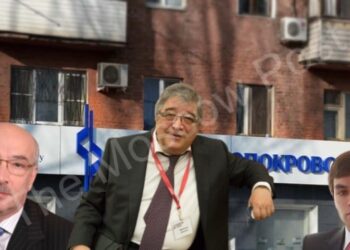During its first twenty five years of independence Ghana suffered five successful coups and several attempted coups and lesser disturbances. Unlike in other developing countries where coups and attempted coups have often led to civil war and great loss of life and limb, in Ghana its coups were almost bloodless. The one exception to this rule was the coup of 4 June 1979 which brought Flight Lieutenant Jerry John Rawlings to power for the first time. It is easy to blame the perpetrators of the coup for the violence that occurred but some people called for even more extreme measures. What follows is an eyewitness account of the occasion shortly after the June 4th coup when the young flight lieutenant and leader of the revolution visited the Kwame Nkrumah University of Science and Technology in Kumasi.
I was surprised to find that there was great enthusiasm amongst the students for this coup. People had grown tired of the Acheampong era with its hardships and widespread corruption and they were happy to see it swept away. Rawlings, named at birth Jeremiah, owed his eventual name, like Kwame Nkrumah, to a mistake, in this case on enrolment in the Ghana Air Force. A young and charismatic figure with a curiously bright orange complexion, Jerry John Rawlings promised to cleanse Ghana of the corruption that had blighted previous regimes. He announced that he would clean out the corrupt elements and then hold the elections promised by Akuffo to return the country to democratic rule.
Three weeks after the coup, Rawlings confirmed the cleansing process with the summary execution of some twelve individuals, including three former heads of state: Afrifa, Acheampong and Akuffo. Many Ghanaians were horrified by these executions as they had formerly claimed that their coups were bloodless. Rawlings’ violent behaviour was attributed to his part-foreign ancestry. His mother was from the Ewe tribe of the Volta Region but his father was a Scotsman. Ashantis were particularly shocked at the execution of Afrifa. What had he done to deserve such a fate? He had returned Ghana to democracy in 1969, handed over as Head of State to a ceremonial president in August 1970 and vigorously opposed the Acheampong regime from the time of the coup in January 1972.
If many Ghanaians were already doubting Rawlings’ suitability to lead the country, this doubt was not shared by most of the university students. Soon after the executions Rawlings came to Kumasi. Standing on the roof of his vehicle beside a very nervous Vice-Chancellor, on the university sports field, surrounded by two thousand students, Rawlings forcefully declared his aims. He wanted nothing less than a revolution. There was in Ghana, he said, an extensive network of people who manipulated the economy for their own benefit. Included were businessmen in the import-export trade, Ghanaians, Lebanese and Syrians, as well as high officials in government ministries and departments and the heads of many institutions, including schools, colleges and universities. He cast suspicion on all people of professional and managerial status and said that workers and students should act to expose the guilty people. “You know who these people are,” he shouted, “Help us to root them out!”
Much to the Vice-Chancellor’s alarm, the students now started to shout for all these people to be executed like the twelve who had just met this fate. Rawlings said that it would be impractical to go that far. The corrupt people should be punished but he could not agree to execute them all. The students still insisted on the execution of all their corrupt oppressors and the meeting deteriorated into a state of deadlock. It was late afternoon and the shadows were lengthening across the sports field so the Vice-Chancellor suggested continuing the debate in the Great Hall of the university. No doubt he was relieved to abandon his precarious perch on the roof of Rawlings’ car.
Nothing that Rawlings or the Vice-Chancellor could say could dowse the students’ ardour. They insisted on howling for blood. Eventually, to bring matters to a conclusion, Rawlings issued a challenge. “You know the corrupt people in this university. Bring them to me here at 08.00 tomorrow morning and I will have them executed.”
That night many professors, lecturers and administrators did not sleep in their beds on the university campus. Meetings went on in the students’ halls of residence throughout the hours of darkness. But the next morning Rawlings waited in vain. Coups and revolutions in Ghana are, or should be, bloodless.








